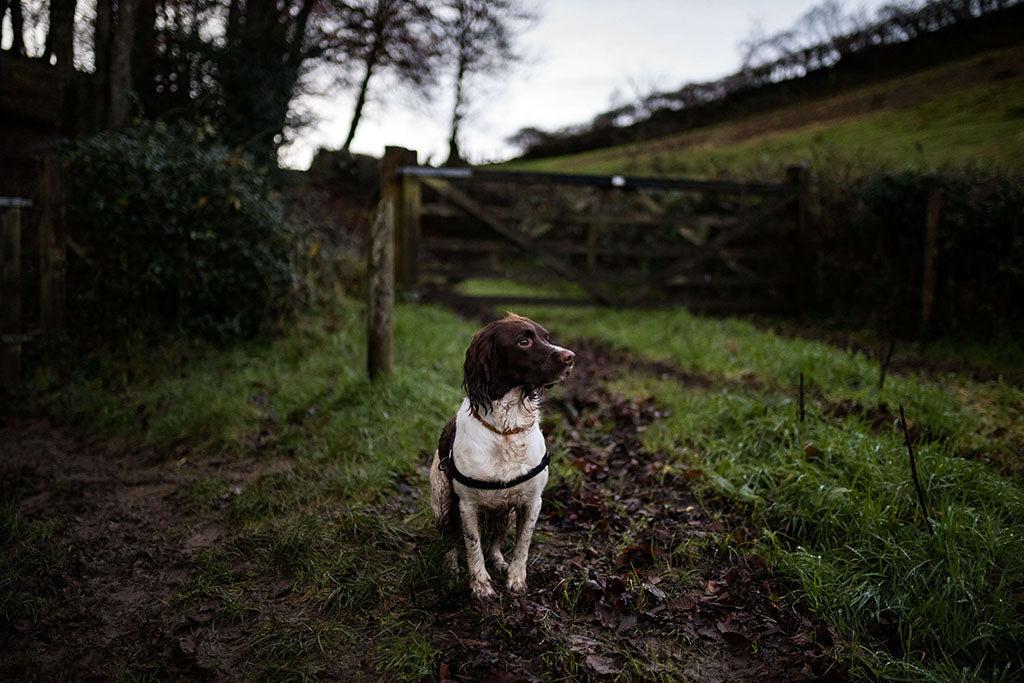Summary: Is your dog eating mud? In this blog, discover why some dogs eat or lick mud, and learn how to encourage them to stop doing it… Some doggos like to explore the world primarily with their mouth! They like to taste, as well as sniff everything new to them. But, should you be concerned […]
Why Do Dogs Eat Dirt?

Summary: Is your dog eating mud? In this blog, discover why some dogs eat or lick mud, and learn how to encourage them to stop doing it…
Some doggos like to explore the world primarily with their mouth! They like to taste, as well as sniff everything new to them. But, should you be concerned if your dog likes to lick and gobble down dirt and mud?
Dogs Eating Dirt
First things first, despite it being a common behavior, dogs shouldn’t be allowed or encouraged to eat dirt or mud as it can pose several health risks. These include;
- A higher risk of contracting worms or other parasites
- Potential damage to their teeth, mouth, throat, stomach, or digestive tract
- Mud poses a high choke risk
- It could impact the intestines and cause a blockage that will require invasive surgery
- Potential risk of ingesting pesticides and other toxic chemicals used to boost the soil
Why Is My Dog Eating Dirt?
Dogs may eat dirt for a number of reasons. If they’re doing it often and seemingly compulsively, these reasons include;
They may have an upset stomach; your dog may be attempting to eat grass as they sometimes do this if their stomach is unsettled.
They may be experiencing a nutritional imbalance; although rare, a dog may be munching on dirt and mud because their body is experiencing a deficiency of a certain mineral. This may be because it’s not present enough in their diet, or an underlying condition is causing their body to struggle with absorbing it.
There may be something tasty in the dirt; if they keep returning to the same area, check it to make sure there isn’t something tasty or interesting luring your dog to the same soily spot.

They may be anemic; if a nutritional imbalance is present in your dog’s body, this may make them anemic which is marked by low hemoglobin levels in their blood or a general low blood cell count. This will need to be verified by a qualified veterinarian who will need to check your pup’s blood work, but anemia can cause a dog to compulsively eat dirt.
They may have a condition called Pica; Pica (pronounced Pie-Kuh) is a dog eating disorder that involves eating non-digestible items. This can be anything from rocks, human clothing, glass, coins to batteries, bark, wires, gravel, sand, or – you guessed it – dirt.
They may be stressed or bored; sometimes dogs engage in different, erratic behaviors because of anxiety and stress or because they are lacking mental and physical stimulation. This includes eating things they shouldn’t, like mud and dirt.
You should take your dog to see their vet if your dog eating dirt seems to be a new, compulsive or repetitive habit, if they don’t seem themselves after having eaten dirt, and/or if they’ve eaten a substantial amount.

Dog Eating Mud
You should try and encourage your dog not to eat mud via positive reinforcement training, so they don’t hurt their insides or make themselves unwell. You can do this by;
Practicing their recall training; making sure you can get your dog to stop whatever they’re doing and pay attention to you is a great way of ensuring they stop eating dirt when you spot them doing so. If you’re struggling to get a good recall from them, employ an ethical, kind, professional dog trainer who can help you get the habit under control.
Moving indoor potted plants; make sure your dog can’t get their nose into any plant pots inside the house and move them out of your pup’s reach.
Using their leash; if their recall isn’t strong enough just yet, keep them on the leash while you walk them outside so you can help keep them away from exposed dirt.
Making sure they’re receiving appropriate attention and exercise; make sure your dog is being walked the right amount for their breed and size and make sure they’re getting the attention they need (and deserve!) every day to help keep them from acting out.
Making sure their diet is sufficient; if you’re concerned your dog isn’t getting the right nutrients they need, make sure you take some time to discuss their current diet and what dietary changes you could implement with your vet.
If their dirt-eating habit continues, do check in with your vet. Because despite it being a common behavior some dogs adopt, it’s not a healthy one and needs to be sorted ASAP in order to protect their health and wellbeing.
Sources
Author Bauhaus, Jean Marie “Why Is My Dog Eating Dirt?” Hill’s Pet, Apr 01. 2020 https://www.hillspet.com/dog-care/behavior-appearance/why-do-dogs-eat-dirt
Author Peralta, Jessica “5 Reasons Dogs Eat Dirt” Dogs Naturally Magazine, Dec 12. 2020 https://www.dogsnaturallymagazine.com/5-reasons-dogs-eat-dirt/
 S
S



